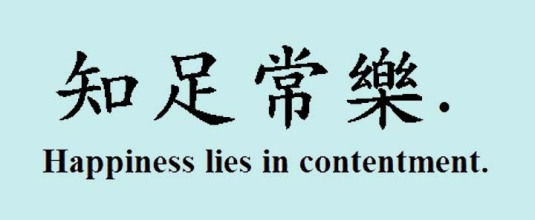
Another year of hard work studying Chinese is coming to a close. I thought we could get a taste of classical Chinese and have some fun as well.
As you know, Confucius is the most respected world-renowned ancient Chinese philosopher/teacher. He was born in the Shandong Provide of China in 551 BCE. He served as an adviser to various state governments, had many worthy disciples and a huge following among the elites as well as the common people. His teachings emphasized proper social relationships, the acquisition of knowledge, and the importance of moral values, such as justice, kindness and sincerity.
Not to be confused with “confusion”, “Confucius” is the Roman literalization of 孔夫子 (Kǒng fūzǐ Master Kong), where 孔 (Kǒng) is his surname, and 夫子 (fūzǐ) means a master or a scholar. 孔子 (Kǒngzǐ) is simply the short form of 孔夫子 (Kǒng fūzǐ).
After Confucius died, his disciples and followers wrote down his teachings and remarks in a book called 论语 (Lúnyǔ), which is referred to in English as the Analects of Confucius, or simply the Analects. Throughout the Analects, you will see the expression “子曰 (Zǐ yuē)”, which means “Confucius said”. Please note that the 曰 (yuē) character is wider than the 日 (rì day or the sun) character. The 曰 (yuē) character is not used in present-day Chinese.
As Confucius was regarded as a sage, people listened to and took note of everything that he said. In fact, one of his sayings is akin to the Golden Rule valued in the western culture:
子曰: “己所不欲勿施予人.”
Zǐ yuē: “Jǐ suǒ bù yù wù shī yǔ rén.”
Master Kong said, “Don’t do to others what you don’t want others to do to you.”
Another example is his general advice to the rulers of that time:
子曰: “导千乘之国,
Zǐ yuē: “Dǎo qiān chéng zhī guó,
Master Kong said, “To govern a country of a thousand chariots,
敬事而信
jìng shì ér xìn,
one must attend to the state affairs earnestly and be trustworthy,
节用而爱人,
jié yòng ér àirén,
be prudent with expenses and love the people,
使民以时.”
shǐ mín yǐ shí.”
and call for the people’s service at the proper time.
(Namely, not in conflice with their farm work.)
See how concise and terse written classical Chinese is in comparison with modern Chinese and English?
Among the disciples who closely followed Confucius, there were a few favorites, one of whom was 顏回 (Yán huí). One day, Confucius sighed and blurted out the following in praise of 顏回 (Yán huí), whom he referred to by the first name 回 (Huí).
子曰: “贤哉, 回也!
Zǐ yuē: “Xiánzāi, Huí yě!
Master Kong said, “How virtuous Hui is!
一箪食, 一瓢饮,
Yī dān shí, yī piáo yǐn, zài lòuxiàng.
He only has one bowl of rice to eat and one ladle of water to drink (for a meal);
在陋巷.
zài lòuxiàng
and he lives in a back alley.
人不堪其忧,
Rén bùkān qí yōu,
Other people would find the sorrow (of such poverty) unbearable,
回也不改其乐.
Huí yě bù gǎi qí lè.
yet Hui does not change his happy attitude.
贤哉, 回也!”
Xiánzāi, Huí yě!
How virtuous Hui is!”
As a Chinese saying goes, 知足常乐 (zhī zú cháng lè), i.e. happiness lies in contentment. 顏回 (Yán huí) was a paragon of this virtue.
I studied the Analects of Confucius at high school, and when I mentioned this part to my father, it reminded him of a parody that he once heard uttered in the Shandong dialect. It goes like this:
回儿也! 回儿也!
Huí er yě! Huí er yě!
Hui my boy! Hui my boy!
你真是个好人儿也!
Nǐ zhēnshi gè hǎorén er yě!
You are truly such a good person!
你用篮子吃饭, 瓢儿喝水.
Nǐ yòng lánzi chīfàn, piáo er hē shuǐ.
You eat from a basket and drink from a ladle.
三间破房没大门.
Sān jiān pò fáng méi dàmén.
Your three shabby rooms have no main door.
人家都为你掉眼泪儿.
Rénjiā dōu wèi nǐ diào yǎnlèi er,
Everyone sheds tears for you,
你还说: “没事, 没事.”
nǐ hái shuō méishì, méishì.”
but you still say, “No problem, no problem.”
As you may know, the Shandong dialect, like the dialect of many other Chinee provinces, sounds quite different from Mandarin Chinese. Click here if you would like to listen to my mimicking this parody in the Shandong dialet. For the fun of it, I also tried it in the Taiwanese dialect. Would you like to do it in your own language or dialect? Have a good laugh.

Recent Comments